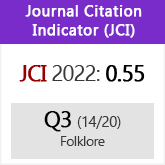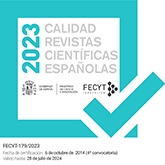La antropología social española en los 80 como paradigma tardomoderno
DOI:
https://doi.org/10.3989/rdtp.2005.v60.i2.98Keywords:
History of the Anthropology, Spain, Identity, Tardomodem, Epistemology, AcademyAbstract
In the end of the seventies and the decade of 80 in the XX Century are marked by a deep change in the structures and systems of the politics, the society and the Spanish economy, where it highlights the creation and consolidation of the Spain of the Autonomies. In this same period the social anthropology is devoted with profusion to sit down the bases of its own work, so much in the academi than institutionally. At the same cheats that it is centred in the systematic study of the differential reality of the Spain's century end, taking the topic of the identity central like. In this article it is meant to this process as tardomodem, to be able to arrive to a conformation of the history of the Spanish anthropology in syntony with the big contemporary paradigms and in consonance with the countries of our environment.
Downloads
Download data is not yet available.
Downloads
Published
2005-12-30
How to Cite
Anta Félez, J.-L. (2005). La antropología social española en los 80 como paradigma tardomoderno. Disparidades. Revista De Antropología, 60(2), 5–27. https://doi.org/10.3989/rdtp.2005.v60.i2.98
Issue
Section
Articles
License
Copyright (c) 2005 Consejo Superior de Investigaciones Científicas (CSIC)

This work is licensed under a Creative Commons Attribution 4.0 International License.
© CSIC. Manuscripts published in both the printed and online versions of this Journal are the property of Consejo Superior de Investigaciones Científicas, and quoting this source is a requirement for any partial or full reproduction.All contents of this electronic edition, except where otherwise noted, are distributed under a “Creative Commons Attribution 4.0 International” (CC BY 4.0) License. You may read here the basic information and the legal text of the license. The indication of the CC BY 4.0 License must be expressly stated in this way when necessary.
Self-archiving in repositories, personal webpages or similar, of any version other than the published by the Editor, is not allowed.















